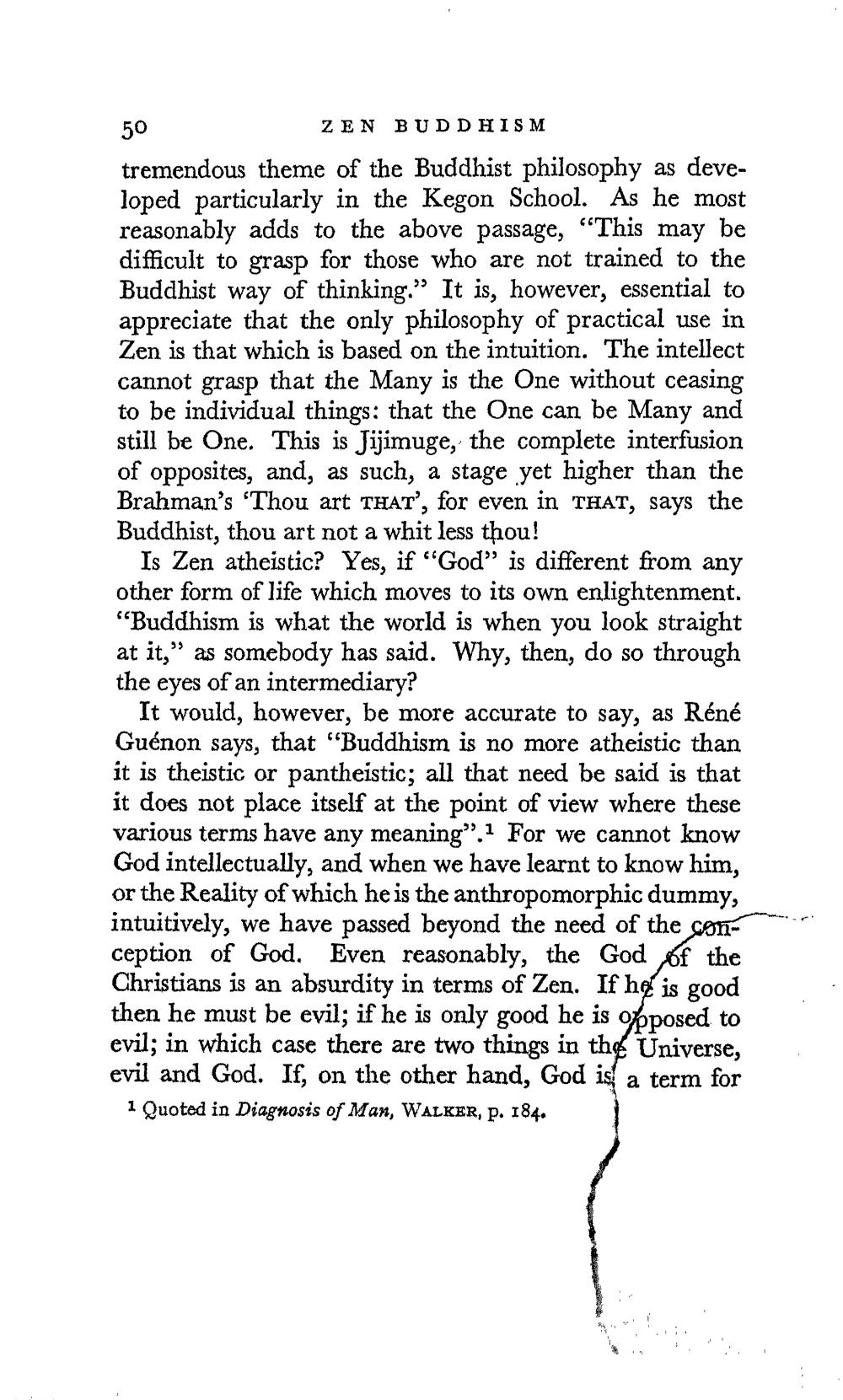________________
50
ZEN BUDDHISM
tremendous theme of the Buddhist philosophy as developed particularly in the Kegon School. As he most reasonably adds to the above passage, “This may be difficult to grasp for those who are not trained to the Buddhist way of thinking." It is, however, essential to appreciate that the only philosophy of practical use in Zen is that which is based on the intuition. The intellect cannot grasp that the Many is the One without ceasing to be individual things: that the One can be Many and still be One. This is Jijimuge, the complete interfusion of opposites, and, as such, a stage yet higher than the Brahman's “Thou art THAT', for even in THAT, says the Buddhist, thou art not a whit less thou!
Is Zen atheistic? Yes, if “God” is different from any other form of life which moves to its own enlightenment. "Buddhism is what the world is when you look straight at it," as somebody has said. Why, then, do so through the eyes of an intermediary?
It would, however, be more accurate to say, as René Guénon says, that "Buddhism is no more atheistic than it is theistic or pantheistic; all that need be said is that it does not place itself at the point of view where these various terms have any meaning”. 1 For we cannot know God intellectually, and when we have learnt to know him, or the Reality of which he is the anthropomorphic dummy, intuitively, we have passed beyond the need of the conception of God. Even reasonably, the God of the Christians is an absurdity in terms of Zen. If he is good then he must be evil; if he is only good he is opposed to evil; in which case there are two things in the Universe, evil and God. If, on the other hand, God is a term for
1 Quoted in Diagnosis of Man, WALKER, p. 184.




